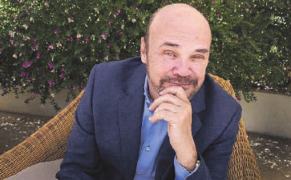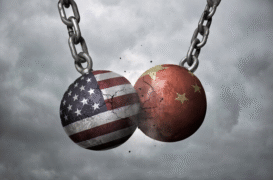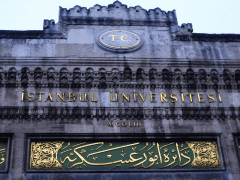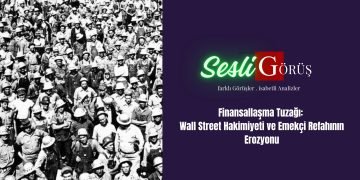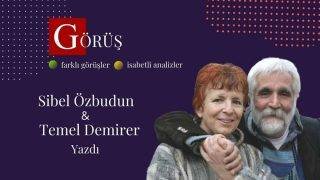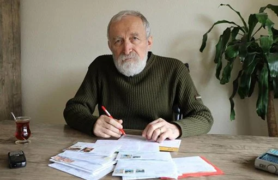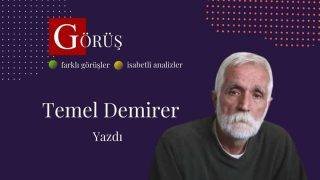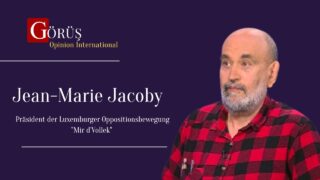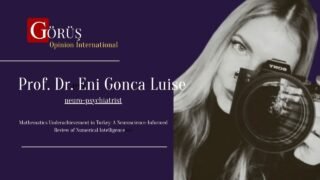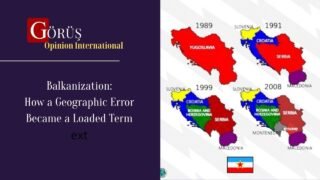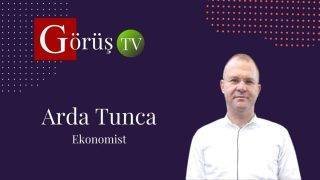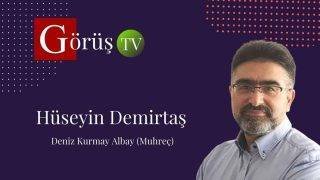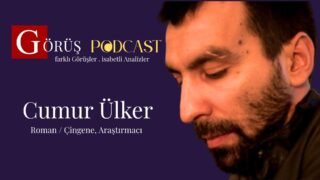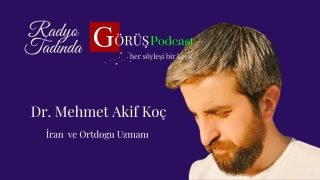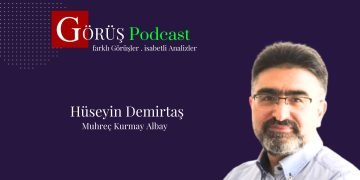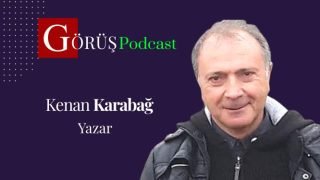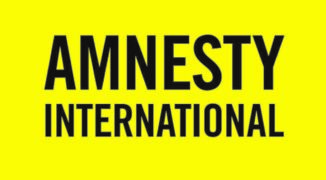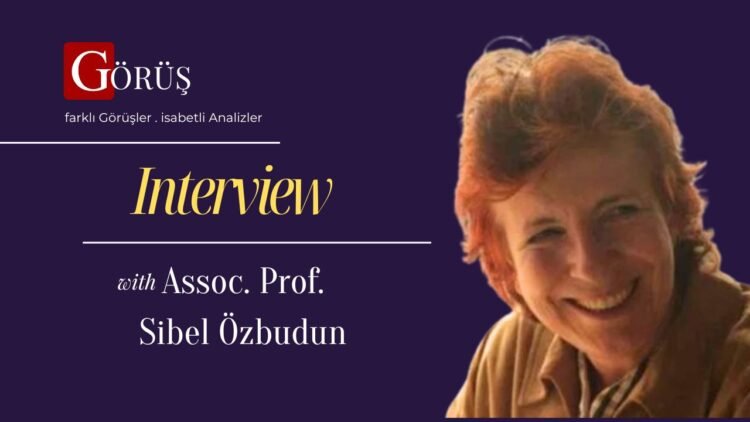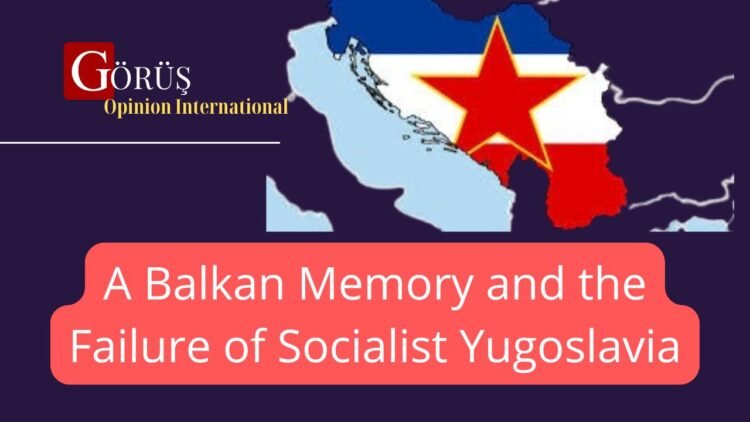
The world is suffering the kind of pandemic that many experts (including those writing in the Bulletin) have long warned was all but bound to occur. Unfortunately, with a few exceptions, governments around the world—including, notably, the US federal government—failed to adequately prepare for today’s pandemic and are therefore responding haplessly as COVID-19 spreads. In the United States, the Trump administration’s incoherent reaction to the coronavirus pandemic has created a grisly sort of natural experiment in distributed governance: State and local officials, public health experts, the media, and citizens at large have been left to fill medical service, supply, and information gaps that would not exist if the central government had anything like a serious handle on the situation.
I have no idea what result this unplanned civic experiment will produce. My hope is that American expertise, ingenuity, and community spirit can work a minor miracle, pushing the White House toward a more energetic, more scientific, and more truthful response to the coronavirus crisis as local and state officials marshal resources and save as many lives as possible. But this is no time to sugar-coat ugly facts: The Trump administration’s response to this pandemic has been tactically inept and almost completely lacking in anything like a strategic approach. The prior sentence is not to suggest the Trump administration is alone in its incompetence. The experience of Italy, Spain, and the United Kingdom shows that so-called developed countries of many stripes can respond ineffectively to crisis.
But until recently, the United States was considered the world leader in public health, the essential linchpin in the world’s efforts to monitor incipient outbreaks and limit their spread. The US failure in dealing with COVID-19 domestically is therefore reflective of a larger problem—the erosion of the international infrastructure for dealing with major global threats in general. In 2020, go-it-alone political nationalism—in the United States, China, Russia, and other countries around the world—will be a contributing factor in the unnecessary deaths of at least tens of thousands (and perhaps hundreds of thousands or millions) of people in a pandemic that could and should have been greatly limited by effective international cooperation.
If carried on long enough, similarly ineffective and nationalistic approaches to the major global risks posed by nuclear weapons and climate change will inevitably result in catastrophe so extraordinary in scope as to make the current coronavirus pandemic seem a minor inconvenience. The real question on the table now is whether leaders of the United States and other major countries will decide that the short-term political benefit that national exceptionalism may confer is more important than the shared, long-term interest their citizens have in survival. It is this simple: To deal competently with the current pandemic and protect humanity over the longer term, the major nations of the world will need to subordinate nationalistic political ideology to international cooperation aimed at the preservation of lives and futures.
America First and its Russian and Chinese analogs may be temporarily profitable in terms of domestic political benefit for sloganeering national leaders. As the coronavirus pandemic is making clear, however, nationalistic ideologies can be dangerous to human health, sometimes on a vast scale.
Many warnings, little response. The Bulletin has covered global biological threats for decades, in articles written by a wide variety of top public health experts. That coverage has largely revolved around biological weapons, how to limit and eliminate them, and how to prepare for and respond to a bio-attack, should a country or terrorist launch one. Our biosecurity experts have, however, also devoted significant time and space to the need for countries around the world to prepare, in concert, for natural outbreaks of disease, even though they are not the kind of man-made threat that the Bulletin generally focuses on (see: nuclear weapons).
There are a couple of reasons for our longstanding interest in disease outbreaks, including the coronavirus pandemic the world now suffers. First, the governments known to have attempted to make and defend against bioweapons have tended to research pathogens—anthrax and smallpox, for example—that made the jump from animal reservoirs to human populations. Also, preparations to reduce the impact of such zoonotic disease outbreaks could serve to protect society during an attack involving biological weapons. The public health preparations required to limit the biological carnage are essentially the same in both cases.
Long before the new coronavirus disease now officially named COVID-19 emerged in China, Bulletin experts made clear that the United States was ill-prepared to respond to either a naturally occurring pandemic or a purposeful bioattack. Princeton University public health expert and Bulletin columnist Laura Kahn has been especially prescient in regard to natural outbreaks of disease. A little more than a month before President Trump assumed office, Kahn wrote a piece, headlined “Biodefense and the next presidency,” that argued for increased public health preparedness to deal with emerging zoonotic diseases—that is, diseases like COVID-19. Another of her columns, written in January 2019, included sentences that, unfortunately, couldn’t be more applicable to today’s pandemic-altered world: “But imagine the chaos that could ensue if the United States were confronted with an actual crisis caused by outside forces, such as an influenza pandemic or bioterrorist attack. With so little trust in government, and eroding trust in science due to false information—sometimes peddled by those in power themselves—America is vulnerable. Distrust, unfortunately, makes it difficult to prevent, prepare for, or recover from a major public health emergency.”
But Kahn is no lone outlier. Many experts, in and out of government, have long urged the US government to better prepare for the possibility of a pandemic, to little avail. In fact, the Trump administration’s Department of Health and Human Services ran a series of exercises in 2019 based on a fictional pandemic scenario code-named “Crimson Contagion.” Those exercises, revealed recently in the New York Times, produced “sobering results—contained in a draft report dated October 2019 that has not previously been reported—[that] drove home just how underfunded, underprepared and uncoordinated the federal government would be for a life-or-death battle with a virus for which no treatment existed.
“The draft report, marked ‘not to be disclosed,’ laid out in stark detail repeated cases of ‘confusion’ in the exercise. Federal agencies jockeyed over who was in charge. State officials and hospitals struggled to figure out what kind of equipment was stockpiled or available. Cities and states went their own ways on school closings,” the Times reported, adding, quite accurately, that those shortcomings “are now playing out in all-too-real fashion across the country.”
Public pressure for better government performance. As many news outlets have documented, some governments around the world—among them South Korea, Singapore, and Taiwan, which had previous experience with another lethal coronavirus disease, SARS—have responded relatively effectively to the novel coronavirus outbreak. Here in the United States, however, the failure to plan for and respond to the COVID-19 pandemic has been glaringly obvious. Through repeated cuts to the budgets of the Centers for Disease Control and Prevention and other agencies tasked with outbreak control in the United States and around the world, the disbanding of the National Security Council Directorate for Global Health Security and Biodefense, and a failure to follow its own strategic biodefense plan, the Trump administration hollowed out the domestic and international infrastructure needed to respond to a biological emergency.
The initially slow and inept US response to the COVID-19 outbreak appeared early last week to be headed in a somewhat more realistic and less overtly political direction. President Trump at long last acknowledged the pandemic as real, designating it a national emergency; allowed trusted experts such as Anthony Fauci, director of the National Institute of Allergy and Infectious Diseases, to step to the fore in terms of public communication; and began to announce social-distancing steps that are at least reasonably aligned with the magnitude of the risk that the pandemic poses. As the president limited, for a few days, his downplaying of the pandemic, calls for national unity multiplied, along with suggestions that now is not the time to assign blame, but to act to reduce the scope of and eventually quench the outbreak.
Just the same, the president returned relatively quickly to dissembling about the pandemic, saying last Tuesday that he has always thought COVID-19 was a serious pandemic threat, even though video recordings of his own on-the-record statements completely belie that assertion. He has also made assertions about efforts to greatly increase testing and production of equipment to deal with the crisis; those assertions seem, sadly, to have been exaggerated or simply untrue. And this week he has begun talking about an early end to the social distancing effort that aims to keep hospitals from being overwhelmed with COVID-19 patients—even though public health experts warn that such an early opening of the US economy could result in chaos and large-scale death.
The US federal response to the pandemic will likely continue to lag and be incoherent. This response to COVID-19 is suboptimal, but it seems the reality America must live and, unfortunately, die with in coming weeks.
To improve the federal response to the greatest extent possible, public health experts in the US government will need to continue to push, wheedle, and flatter President Trump, in whatever ways that work to move him toward positive action and outcomes—knowing, all the while, that he may very well speak and tweet in ways that sometimes sabotage effective public health policy. Two steps forward and one back may be the best America and the world can expect from this particular administration. Meanwhile, public health experts outside the government will have to continue to hold Trump and top appointees in his administration rigorously to account. At the same time, state and local public health officials will need to act to protect the people they serve in whatever ways they can.
US citizens also have a role to play. As they cooperate in the mass social distancing that is the best chance for limiting the spread of COVID-19, they too need to maintain political pressure on the federal government—via social media and in communication to their representatives in Congress—to step up its coronavirus response. Unity does not require that citizens cheerlead an incompetent governmental response to a lethal disease.
Finally, as the pandemic plays out, the fact-based American press needs to keep doing what it does best: Reporters should continue to ask important, challenging questions, even and especially when they are embarrassing to those in power. The consistent pointing up of difficulties or failures in the governmental response to the pandemic is a key component of the effort to diminish those difficulties and failures. An active, principled, fact-based press is also vital to the suppression of false conspiracy theories and propaganda that are all too easily spread in an internet-dependent world.
Preparing for future global threats. As the current crisis ebbs—and it will, whether in two months or nine or 12 or 18, with more or fewer deaths, depending—responsible public officials, the fact-based press, and the public at large will need to focus on steps that reduce the likelihood and severity of future pandemics. Those plans should focus on restoring the eviscerated US and world infrastructure that aims to discover and deal with emerging biological threats. In a statement in January, the Bulletin’s Science and Security Board moved the Doomsday Clock as close as it has ever been to midnight—that is, to the end of civilization—in significant part because world leaders had allowed the international political infrastructure for managing major global threats to erode. It is clear that the infrastructure for dealing with global biological threats is indeed in disarray and needs fundamental reform that focuses on improved transparency and early information sharing.
But the global threat management problem is far larger than the current pandemic.
Regardless of the ideology of their leaders, nations and citizens of the world have important interests that coincide; they face common threats that dictate collective action. Nationalism may be useful as a domestic political wedge, but as a framework for effective policy it is fundamentally unsuited to the many truly global existential threats—nuclear, climatic, biological, and other—that the 21st century world faces. If the Apocalypse arrives, its four horsemen won’t respect national borders or discriminate by political ideology. They are dedicated globalists, equal-opportunity destroyers of lives and civilizations. Keeping them at bay requires coordinated preparation and a cooperative response that is essentially international in nature. The current pandemic is only the latest addition to a long, blood-soaked line of evidence that extreme nationalism is a failed—and far too often deadly—ideology, a badly dated relic and an utterly bankrupt approach to modern governance. There is plenty of room to accommodate it in history’s dustbin. Where it has long belonged.
The original source of this article is Bulltein of the Atomic Scientists, March 27, 2020
